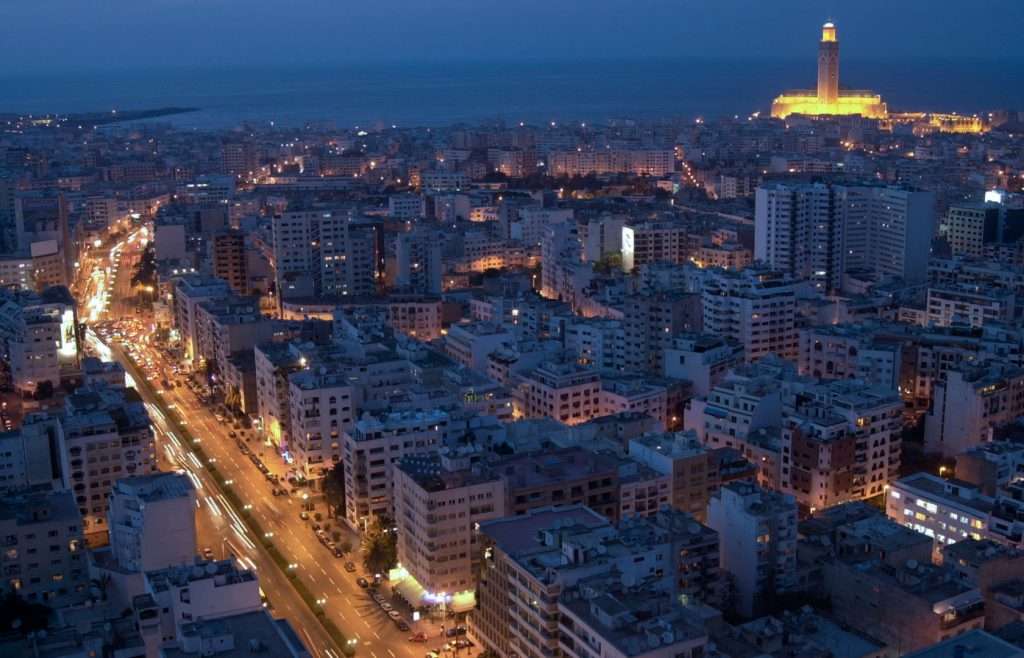‘Medusa’ project set to bring 5G internet to Maghreb

Middle East Monitor and agencies reported on July 7th that the $370 million Medusa project is set to establish the first submarine internet cable between Morocco, Algeria, Tunisia, Libya, and possibly Egypt by 2026.
The 8,700 km of subsea cable would connect southern Europe and North Africa. The infrastructure is set to be operational in the eastern Mediterranean in 2025 and in the west by 2026. Industry analysts are calling the boost to infrastructure development necessary as internet usage surges in the region.
“These are big markets if you look at the broadband and internet subscriber base, generating between a quarter to a third of all of Africa’s data traffic’ said Guy Zibi, founder of Xalam Analytics.
The project comes as Algeria, Tunisia, and Libya currently rely on internet connections that utilise ageing cables that lack the capacity to handle the increased bandwidth necessary for 5G. The infrastructure hopes to establish not only more internet connectivity but also economic prosperity and political collaboration amongst the countries involved.
READ: Internet blackout hits eight African countries
UN trade figures illustrate that North Africa has one of the lowest rates of interregional trade in the world, at 2.4% between the five countries.
The project’s geopolitical obstacles include Algeria’s severed relations with neighbouring Morocco in 2021. Morocco and Algeria have maintained closed borders since 1994 due to tensions over the disputed territory of the Western Sahara. Libya remains divided between the eastern and western administrations after a civil war that lasted a decade.
Opportunities for economic development and improving telecommunications have proved difficult within the region due to the instability caused by the 2011 “Arab Spring” revolutions. Projects such as the Trans-Maghreb Highway and high-speed railway from Morocco to Tunisia never materialised. King Mohammed VI of Morocco labelled the Arab Maghreb Union as “dysfunctional” as an economic and political union to foster great cooperation between countries in the Maghreb, with the last AMU summit with heads of state occurring in 1994.
With the region’s youth accounting for over half of the 212 million population, demand for the internet has skyrocketed in recent years.
The uncompetitive telecoms market is another factor that has stymied connectivity in the region. The most common business model for developing a submarine cable relies on a private consortium of regional firms. Due to the absence of such an option, EU funding has stepped in to solve the problem.
READ: Ignacio Cembrero: The dark side of Morocco diplomacy with EU
The Medusa cable is partially financed by the EU and European Investment Bank through its $320 billion Global Gateway strategy, launched in 2021 to counter China’s Belt and Road Initiative. The strategy aims to improve digital connectivity projects in partner countries and in “the strategic interests of the EU.”
“It is constructing a European gateway to connect them all, south to north, and will connect North African universities to Europe, which is really needed. It’s in the interest of Europe to reinforce the university level in Africa,” stated the vice president of operations at AFR-IX Telecom, Miguel Angel Acero.
Julian Rawle, a submarine fibre-optic cable consultant, explained Medusa’s business model as a cable specifically for other telecom companies to use rather than for its own use or by a group of companies sharing the cost. Acero compares the cable to the construction of motorways: “I put in the roads; they have to put the cars and the people.”
READ: Morocco to build “trade hub” in Dakhla’s Atlantic port
The Medusa project’s advantages also lie in using a third-party provider rather than local telecom providers, which reduces the “geopolitical friction” associated with international infrastructure collaborations.
Though the new cable will bolster internet capacity and introduce the region to 5G, consumer costs are not expected to drop significantly due to the concentrated nature of North Africa’s telecoms market.
Yosr Abid, a Tunis-based economist, states that Morocco stands to benefit the most from increased internet access due to the nation’s openness to foreign investment and conducive business environment. Countries such as Tunisia suffer from a digitalisation strategy that is “not really operating very well,” according to Abid, due to restrictions on business.
Because of the additional bandwidth provided by Medusa, the region could witness more data centres being built. Data centres are physical facilities that house the IT infrastructure necessary for applications and services to run and store the data associated with such systems.
With a third of the top 100 companies in Africa operating in North Africa, the future of building data centres may look promising as demand rises. “A lot of things have to come into play first”, said Zibi, as the development of Medusa relies on sustained stability within the Maghreb and the Mediterranean.
Middle East Monitor and agencies
Want to chase the pulse of North Africa?
Subscribe to receive our FREE weekly PDF magazine














